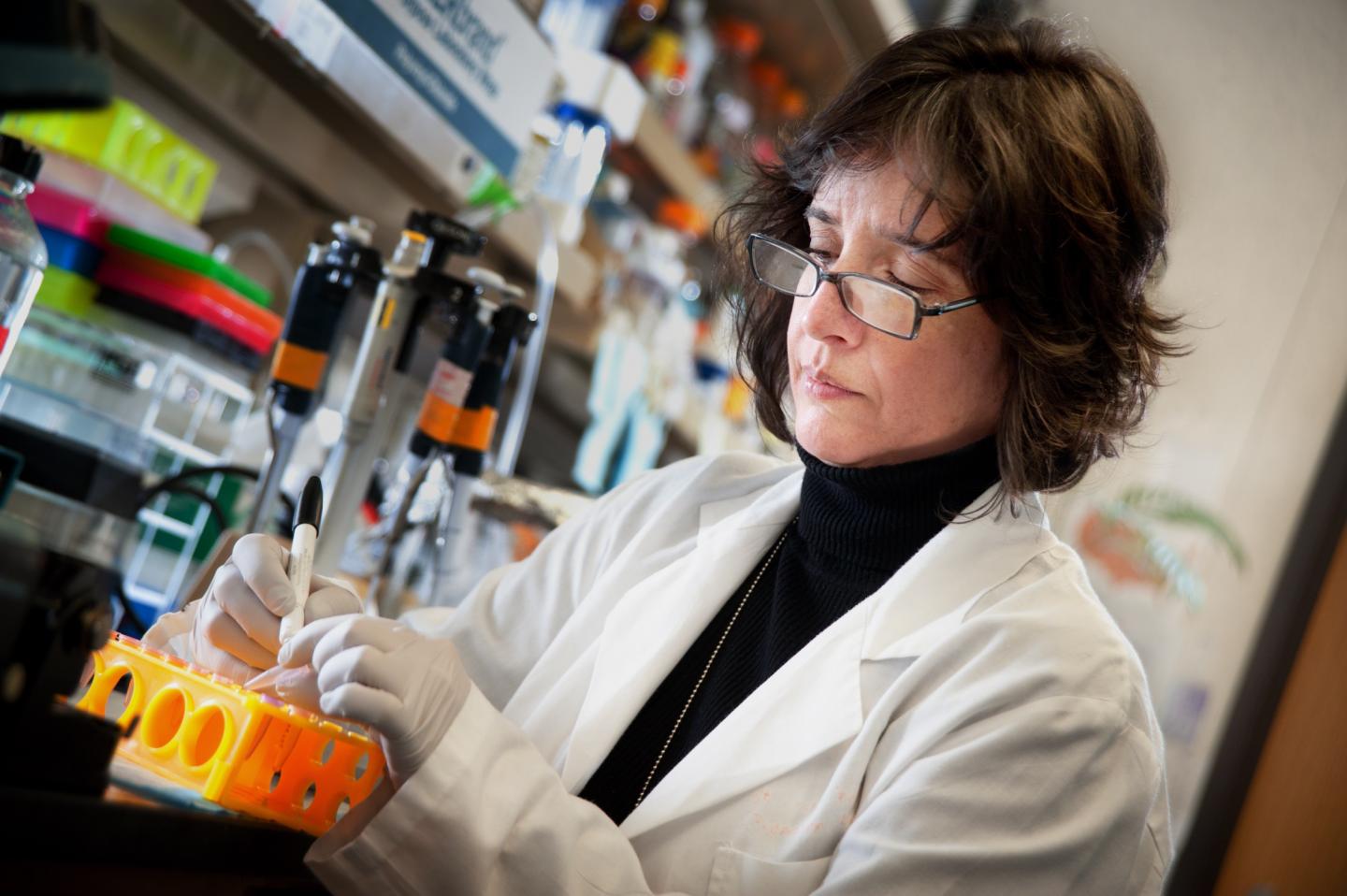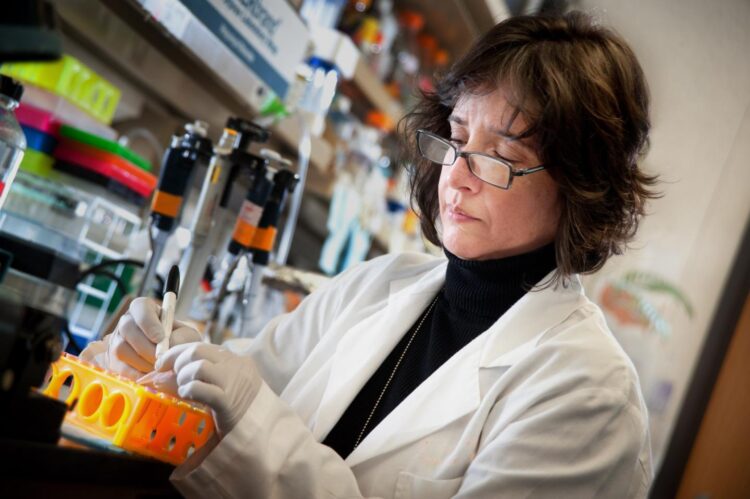Genomic research helps explain why some people with a common TP53 mutation widespread in Brazil get cancer while others do not.

Credit: St. Jude Children’s Research Hospital
Scientists at St. Jude Children’s Research Hospital alongside global partners are studying a common TP53-R337H variant found among people of Brazilian descent. The researchers found that a variant in the tumor suppressor gene XAF1 increases cancer risk when combined with the inherited TP53-R337H mutation. The work appears as an advance online publication today in Science Advances.
“We expect these results to have a significant impact on public health,” said corresponding author Emilia Pinto, Ph.D., of St. Jude Pathology. “Once clinicians know what variants to look for, they will know how to better manage those patients with higher cancer risk.”
A finding 20 years in the making
More than 20 years ago, St. Jude researchers led by Raul Ribeiro, M.D., identified the TP53-R337H inherited variant among Brazilians. Pinto and her colleagues later identified TP53-R337H as a founder mutation, one introduced to Brazil during its colonization. While rare in the general population, TP53-R337H is common in Brazil. It is found in 1 out of every 300 Brazilians.
“The TP53-R337H mutation does not explain the entirety of cancer risk,” said senior author Gerard Zambetti, Ph.D., of St. Jude Pathology. “Variation among individuals with TP53-R337H can lead some to develop several forms of cancer, some to develop a single cancer and others to never develop cancer at all.”
From their whole genome sequencing study, the researchers identified a variant in the tumor suppressor gene XAF1 in a subset of TP53-R337H mutation carriers. Individuals who have inherited both the XAF1 variant and the TP53-R337H mutation are at a greater risk of cancer than those who have only the TP53-R337H mutation.
TP53 mutations are prevalent in individuals with rare pediatric adrenocortical carcinoma. However, TP53 mutations are a prominent factor in many other types of cancer. The knowledge that XAF1 modifies TP53 may fuel further research into whether this target can become the basis of novel treatment strategies.
Finding helps fine-tune public health approach
St. Jude researchers studied the causes of this variation through whole genome sequencing of individuals of Brazilian ancestry. The partnerships forged through St. Jude Global were key to obtaining the samples necessary to do this work.
Led by the Department of Global Pediatric Medicine, St. Jude Global has formed the St. Jude Global Alliance, which includes programs in the Asia-Pacific, Central and South America, China, the East and Mediterranean, Eurasia, Mexico and Sub-Saharan Africa.
“This study would not have been possible without the collaboration of our partners around the world,” said author Carlos Rodriguez-Galindo, M.D., St. Jude Department of Global Pediatric Medicine chair. “These results will have an impact on public health in Brazil but are also important for the pediatric cancer community at large.”
###
Other St. Jude authors are Alberto Pappo, Kim Nichols, Shondra Pruitt-Miller, Geoffrey Neale, Jinling Wang, Wenan Chen, Evadnie Rampersaud, Guilermo Chantada, Andrew Murphy, Patrick Connelly and Jinghui Zhang. The paper also includes authors from 22 other affiliations worldwide.
The research was funded in part by the National Institutes of Health (CA021765), the Speer Charitable Trust, the EXPOGEN-CANCER CNRS International Associated Laboratory and ALSAC, the fundraising and awareness organization of St. Jude.
St. Jude Children’s Research Hospital
St. Jude Children’s Research Hospital is leading the way the world understands, treats and cures childhood cancer and other life-threatening diseases. It is the only National Cancer Institute-designated Comprehensive Cancer Center devoted solely to children. Treatments developed at St. Jude have helped push the overall childhood cancer survival rate from 20% to 80% since the hospital opened more than 50 years ago. St. Jude freely shares the breakthroughs it makes, and every child saved at St. Jude means doctors and scientists worldwide can use that knowledge to save thousands more children. Families never receive a bill from St. Jude for treatment, travel, housing and food — because all a family should worry about is helping their child live. To learn more, visit stjude.org or follow St. Jude on social media at @stjuderesearch.
Media Contact
Marvin Stockwell
[email protected]
Related Journal Article
http://dx.





